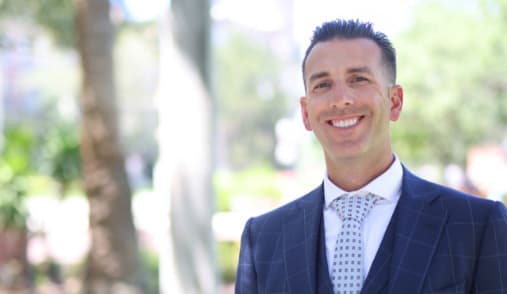Whether you’re cycling for pleasure, commuting, or as part of a fitness routine, riding a bike is a common activity in sunny Florida. However, this practice carries many risks—including the chances of a motor vehicle collision.
Experiencing a bicycle accident can be a distressing and life-altering event, and it can be difficult to know what to do in the immediate aftermath. However, there are steps that you can take to facilitate your recovery and protect your best interests.
Move Out of the Road If Possible
Safety should always be your first priority. If you’re able to, move to a safe location away from traffic to prevent further accidents. However, moving recklessly could exacerbate certain injuries, so if you are hurt, do not attempt to move
Once you are in a safe spot, assess yourself for injuries and check if you need immediate medical attention. Remember, the shock and adrenaline might mask pain initially, so even if you feel fine, be cautious and never assume that you are uninjured.
Call 911 for Police and Emergency Medical Services
Reporting the accident is a vital step, so call 911 as soon as possible. This will bring law enforcement as well as emergency medical services to the scene of the accident.
When the police arrive, they will create an accident report, which becomes a crucial document if you decide to pursue legal action or file an insurance claim. This document will include information such as the names of everyone involved, the time and date of the accident, and the officers’ assessment of how the collision occurred.
Go to the Hospital, Even If You Feel Fine
Even if the injuries seem minor, a medical evaluation is essential for diagnosing potentially overlooked issues and documenting the injuries linked to the accident. Always go to the hospital after a bicycle accident and seek treatment as soon as possible.
Many bicycle accident injuries, such as concussions or internal injuries, might not be immediately apparent. Visiting a hospital or your doctor as soon as possible after the accident can help you prevent potentially dangerous complications. Additionally, your medical records will play a critical role in any insurance or legal claims, serving as evidence of the injuries that you sustained.
Gather Evidence at the Scene of the Crash
If you’re able, collect evidence at the accident scene. This includes taking photos of your injuries, the damage to your bicycle, any relevant road conditions, and the positions of the vehicles involved. Also, gather contact information from witnesses who may have seen the accident. Their testimony can be invaluable for insurance claims or legal actions.
Be Careful When Talking to the Driver
Exchange necessary information with the other party, such as names, contact details, and insurance information, but avoid discussing fault or details of the accident. Statements made in the heat of the moment can be misinterpreted and used against you later. In the days and weeks after the accident, do not speak with the other party or their insurance company, even if they reach out—doing so could harm your case.
Contact a Florida Bicycle Accident Lawyer for Assistance
Seeking legal advice early can help protect your rights and strengthen your claim for compensation. As soon as possible following the accident, schedule a consultation with a Riverview bicycle accident lawyer. They can help you understand your options and initiate your case, allowing you to focus on your recovery.



